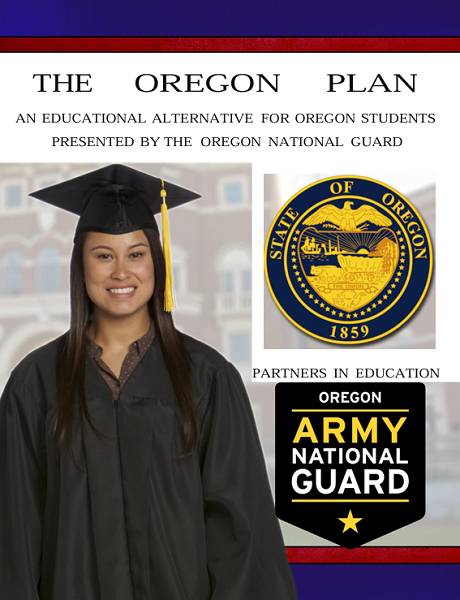Reimagining Oregon’s Accountability System
 Over the next five months, the Oregon Department of Education will do the work called for in
House Bill 2656 and look to develop a framework for the future of Reimagining Oregon’s Accountability System.
Over the next five months, the Oregon Department of Education will do the work called for in
House Bill 2656 and look to develop a framework for the future of Reimagining Oregon’s Accountability System.
New Accountability Web Page
We are sharing this message to introduce this effort and also point you to a
new landing page on ODE’s website which will provide updates, insights, key documents, and research informing the work of an advisory committee, launched in accordance with the bill. The landing page will provide ‘’read-outs’’ of advisory committee meetings. It will also provide information about how to participate in a statewide survey (coming soon!) to make your own contribution. We will need everyone’s input!
Background
Ten months into my tenure as the Director of the Oregon Department of Education (ODE) and with the full support and alignment of Governor Tina Kotek, I am ringing the bell for us to come together and answer the most essential questions for the future of education in Oregon:
- What does a truly excellent educational experience look like for Oregon students now and over the next decade?
- Are school leaders and policy makers aligned to the right goals?
- How do we know if Oregon’s schools are successful in these endeavors?
- How does ODE best support working towards that success?
These important questions, and others like them, have been raised by Oregon families, educators, students, school leaders, tribes, business leaders, and policy makers. Some of these questions have lingered for decades.
We know the word “accountability” means something different amidst partners, educators, elected officials, and the general public.
As we reimagine a vision for what accountability means in Oregon, it is essential that we center the conversation around this state’s diverse student population and a culturally responsive approach to their educational needs.
Thus, a big part of our work ahead is to determine, coherently, what we want accountability to mean in Oregon, now.
Bring your hopes, your fears, and all of your best ideas about what promises we can and should make to Oregon’s young people, educators, and communities. Help ring the bell for reimagining educational accountability in Oregon.
Let’s get to work,
Dr. Charlene Williams
Director of the Oregon Department of Education
Oregon National Guard Program Offers Students Paid Opportunities to Earn High School Credit and Learn Career Skills
 (From an Oregon Military Department press release.)
(From an Oregon Military Department press release.)
High school students in Oregon will have a paid opportunity to learn professional technical training while earning high school credit, as part of the newly endorsed program called “The Oregon Plan.”
Created by the Oregon National Guard, the plan received official approval last month from the Oregon Department of Education, which is required as part of its regular renewal process.
“Through this exciting program students get paid to earn high school credit, learn career skills such as basic finance, medic training, construction and engineering and practice working in teams,” said Dr. Charlene Williams, Director of Oregon Department of Education. “As students plan their summer of learning and work, I hope they consider this enriching and life changing option.”
Background On The Oregon Plan
Established in 1995 as the Military Career Education Cluster Concept, "The Oregon Plan" enables school districts across the state to award academic credits to students who complete qualified military training and instruction. Approximately 700 high school students have joined the Oregon Guard since 2020.
"The Oregon Plan has been providing valuable education pathways for Oregon students for nearly 30 years," said Brig. Gen. Alan Gronewold, Adjutant General, Oregon. "We're proud to highlight this innovative program that recognizes the skills our young recruits gain through their military service."
Multiple high schools across Oregon participate in the program, including Pendleton, Hermiston, La Grande, Elgin, Wallowa, Baker, Ontario, and Grant Union High School in eastern Oregon. Additionally, high schools in Jackson, Josephine, Klamath, Lake, Douglas, Union, Umatilla, Wasco, Hood River, Malheur, Baker, and Wallowa counties have approved use of “The Oregon Plan” as well.
"Our recruiters consistently hear from educators about the value of this flexible credit program," said Lt. Col. Jessy Claerhout, Executive Officer, Recruiting Retention Command. "It provides a helpful pathway for students to turn their military experience into academic progress toward graduation, while obtaining life skills and leadership training."
Many of the credits earned may also translate into college credits towards a higher education degree.
By enabling credit proficiencies through military training, the Oregon National Guard and "The Oregon Plan" exemplify the commitment to developing educated, skilled, and work-ready youth for future success.
Sophomores and Juniors in high school can learn more about the program online.
You can also learn more about the
Oregon Guard’s 100% College Tuition Assistance program.
Asian American/Pacific Islander Heritage Month

The President's proclamation reminds the nation of Asian American Pacific Islander (AANHPI) Heritage Month. Observed annually in May to celebrate the contributions that generations of AAPIs have made to American history, society, and culture. This law also recognized the significance of May 7th and May 10th in the history of Asian/Pacific Americans. May 7, 1843 is the date on which the first Japanese immigrants arrived in the United States while on May 10, 1869 the first transcontinental railroad in the United States was completed with significant contributions from Chinese pioneers.
Resources
Formerly known as the Oregon Nikkei Legacy Center, the Japanese American Museum of Oregon at Naito Center is a venue for culture and research as well as an invaluable resource for exploring Nikkei experiences and their role in Oregon’s multicultural community.
Resources from the Japanese American Museum of Oregon (JAMO).
Additional Resources
Wildfire Awareness Month

Every year, wildfires impact Oregon communities. May is designated as Wildfire Awareness Month to make sure everyone has preparedness in mind for the upcoming fire season. Check out these resources for ways you can prevent and prepare for wildfires:
May is Military Appreciation Month

Military Appreciation Month takes place every year throughout the entire month of May.
ODE In the News